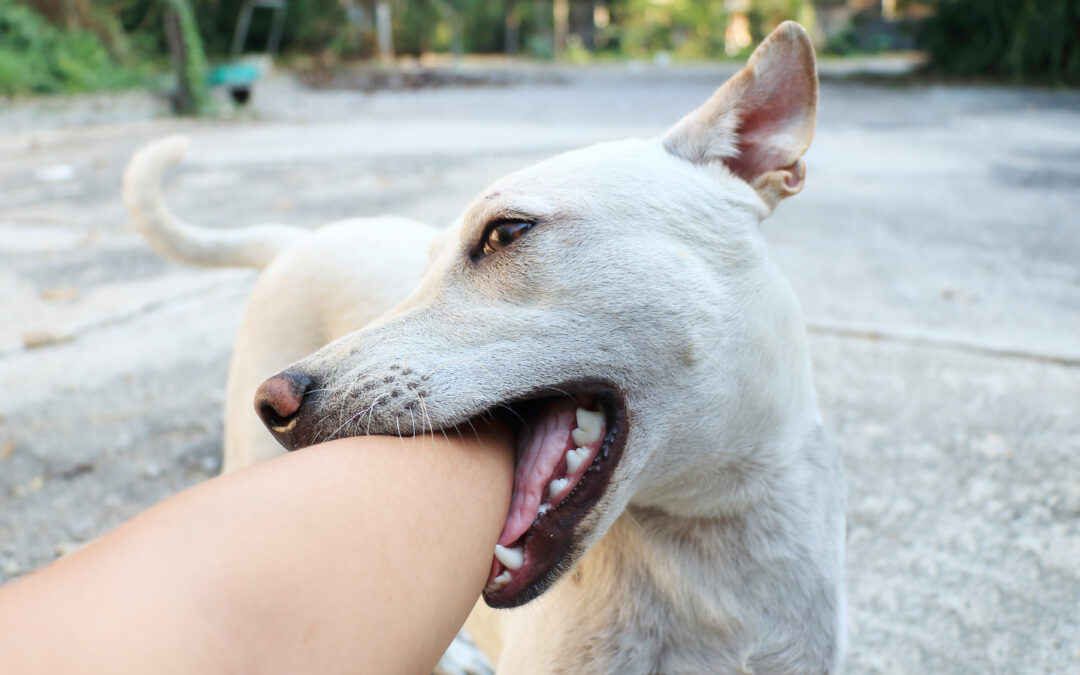As much as we all want to treat our dogs like a member of the family, you have to remember that they’re still an animal with animal urges. Playful biting and nipping is especially common in puppies, but it can carry into adulthood without correction. An adult dog nipping is much more serious than a puppy doing it. The sooner you can break the habit, the better!
Practice Play Sessions
If your dog is a playful biter, practice makes perfect. Encourage your dog to play with you. As they get more excited, they may start to nip or bite. Anytime a bite is hard enough that it’s uncomfortable, make a sound like you’re in pain and stop playing. Don’t play for 10-20 seconds. A dog that recognizes they caused you pain will usually offer gentle licks to make up. Once your dog has mastered only biting lightly during playtime, you can take it a step further to eliminate it completely. Follow the same steps we discussed above anytime you feel your dog start to bite, even if it isn’t hard. They will quickly learn that when teeth get involved, they don’t get to keep having fun with their humans.
Offer Healthy Biting Options
It’s natural that dogs have the urge to bite. Instead of trying to fight the urge altogether, give your dog a healthy outlet for their biting. Keep plenty of chew toys on hand. Anytime the dog starts to bite or nip, quickly offer them a toy they’re allowed to chew on. The goal with this is that eventually, they’ll learn to only chew on their toys and not their owner. Keep a rotation of dog toys so your dog will never get tired of playing with the same stuff.
Praise your dog when they opt for a chew toy instead of your hand. Dogs thrive on positive affirmation, so praise them every time! Learn more on the ASPCA site.
Avoid Boredom
Dogs have a lot of energy, especially when they’re young. It’s unrealistic to expect a young dog not to bite if they aren’t getting enough exercise and socialization. Take your dog out for daily walks, play with them at home, and look for opportunities for your dog to play with other dogs. Encourage low-contact activities during playtime at home. Instead of wrestling, try playing fetch or tug of war. The more you tire your dog out, the less likely they are to bite or nip!
Contact Us
Training a stubborn dog can often feel like an impossible task. Find a routine that works and stick with it. Before you know it, you’ll see the results you’ve been wanting. If you need assistance training your dog or want to learn more about canine socialization opportunities, contact Canine College today! To get started, call 781-767-3908 today.


